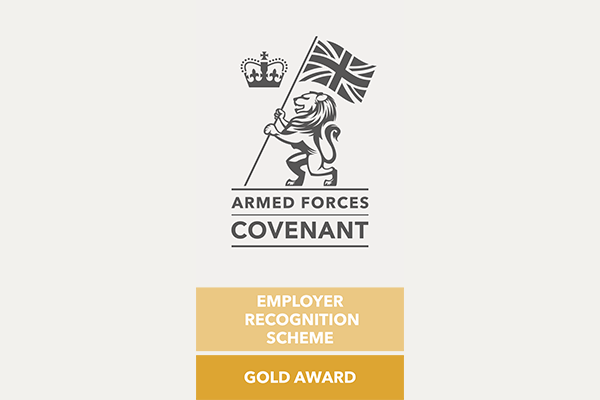Corns and calluses are hardened, thick layers of skin that commonly develop on the feet in response to repeated friction or pressure.
While they are usually not serious, corns and calluses can cause discomfort or pain, particularly when standing or walking. With proper treatment, symptoms can be relieved and potential complications prevented.
What are corns and calluses?
While often grouped together, corns and calluses are different foot conditions.
- Corns are small, raised, rounded areas of hardened skin, often found on or between the toes. They often have a hard centre and may be painful or tender when pressed.
- Calluses are broader, flatter areas of toughened skin that typically form on weight-bearing areas, such as the soles of the feet - particularly under the heels or balls of the feet. They are usually not painful but can become uncomfortable over time.
The main differences between corns and calluses are their size, shape, location, and likelihood of causing pain. Corns are more localised and often more sensitive, while calluses develop gradually and cover a larger area of the foot.
Symptoms of calluses and corns on feet
The most common symptoms of corns and calluses include:
- Thickened, rough patches of skin
- Hardened, raised bumps (typically corns)
- Tenderness or pain beneath the skin
- Dry, flaky, or waxy skin
- Discomfort when walking, wearing shoes, or sometimes even when standing
When to see a doctor about corns and calluses?
Mild corns and calluses typically don’t cause serious problems, but they can sometimes worsen or lead to complications – particularly for those with underlying health conditions.
You should seek medical advice if you experience any of the following:
- Persistent pain or discomfort when standing or walking
- Signs of infection, such as redness, swelling, or pus
- Bleeding or discharge from the corn or callus
- Home treatments are no longer effective
- You have diabetes or poor circulation, or other conditions affecting foot health
Causes of corns and calluses on feet
Corns and calluses develop due to repeated pressure or friction on the skin. Common causes include:
- Wearing tight, ill-fitting, or high-heeled shoes
- Wearing shoes with narrow toe boxes that compress the toes
- Walking barefoot frequently
- Repeated pressure or rubbing on specific areas of the foot
- Foot deformities, such as bunions or hammertoes
- Abnormal gait or walking patterns
- Having flat feet or fallen arches
Risk factors for corns
You may be at increased risk of developing corns or calluses if you:
- Regularly wear tight, high-heeled, or poorly fitting shoes
- Are overweight
- Are very physically active, (e.g. a runner or athlete)
- Spend long periods on your feet, such as in standing jobs
- Have foot deformities or abnormal toe alignment
- Have reduced natural cushioning on your feet due to ageing
- Have medical conditions that can affect your feet, like diabetes or peripheral neuropathy
Treatment of corns and calluses on feet
Mild corns and calluses often improve with simple home care. However, persistent or painful cases may require medical treatment. Treatment options include:
Soaking and corn removal
Soaking your feet in warm, soapy water can help soften thickened skin. You can then gently use a pumice stone to remove the outer layers. Avoid cutting or shaving the skin yourself, as this can lead to injury or infection. A podiatrist can safely remove corns or calluses using sterile instruments.
Medicated patches
Over-the-counter medicated pads containing salicylic acid can help soften and reduce thickened skin. However, if you have diabetes or poor circulation, consult your doctor before using them.
Footwear changes
Switch to well-fitting, supportive shoes that reduce pressure on affected areas. Avoid high heels and opt for shoes with ample toe room and cushioning.
Shoe inserts
Orthotic insoles or custom inserts can redistribute pressure and help prevent recurrence. These are particularly beneficial for people with foot deformities, flat feet, or abnormal gait.
Foot surgery
In some cases, surgery may be recommended to correct structural foot issues contributing to recurring corns or calluses.
How to prevent corns and calluses?
You can reduce your risk of developing corns and calluses - or prevent them from worsening – by:
- Wearing supportive, well-fitting, shoes with adequate toe room
- Avoiding high heels and narrow footwear
- Using insoles or orthotic inserts if recommended
- Consulting a podiatrist about any foot abnormalities or discomfort
- Keeping your feet moisturised to prevent dry or cracked skin
- Regularly checking your feet for signs of friction or pressure
Podiatry at Ramsay Health Care
At Ramsay Health Care, we understand how debilitating foot problems can be – whether it’s persistent pain or recurring conditions like corns and calluses. Our experienced podiatrists are highly trained specialists in diagnosing and treating a wide range of foot conditions.
We take a holistic approach to care. Our podiatrists work closely with a wider team of experts, including Podiatric Surgeons, Physiotherapists, Rheumatologists, and other specialists. This collaborative model allows for diagnosis and treatment to take place under one roof – ensuring seamless, personalised care every step of the way.
Contact us today to find out more about podiatry services at Ramsay Health Care.
Contact Ramsay Health Care today for specialist podiatry support.


